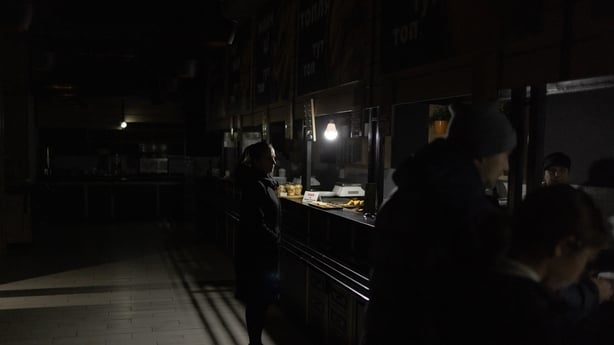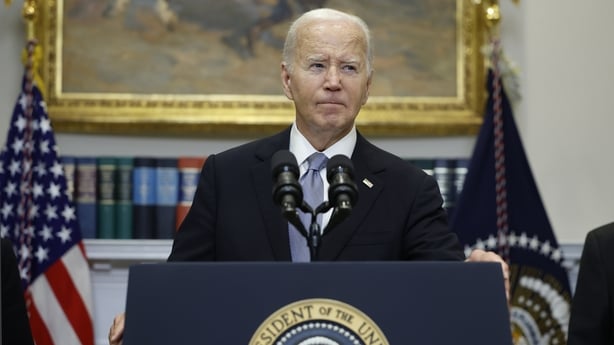Russian Defence Minister Andrei Belousov has hailed "expanding" ties with North Korea, after western countries accused it of sending more than 10,000 soldiers to help Russia fight Ukraine.
"Friendly ties between Russia and North Korea are actively expanding in all areas, including military cooperation," he was quoted by Russian news agencies as saying during a visit to the country.
The United States has accused North Korea of sending thousands of troops to Russia's Kursk region where Russian forces are trying to expel Ukrainian soldiers.
Russia has neither confirmed nor denied the assertion.
The Russian defence ministry cited Mr Belousov as telling his North Korean counterpart No Kwang-chol that a Comprehensive Strategic Partnership Treaty, signed by Russia and North Korea earlier this year, was aimed at reducing the risks of war in northeast Asia and "maintaining the balance of power in the region".
The talks would strengthen the strategic partnership in the military sphere between Russia and North Korea, Mr Belousov said.
Russian news agencies reported that Mr Belousov was due to hold talks with the military and political leadership of North Korea.
Meanwhile Russian President Vladimir Putin threatened to strike "decision-making centres" in Ukraine with a new hypersonic missile, hours after Russia struck Ukraine's energy grid in an attack that left a million people without power.
Ukraine had earlier warned of a "massive" Russian attack on Ukrainian energy infrastructure.

Russia fired more than 90 missiles and around 100 drones during yesterday's barrage, according to Ukraine, with Ukrainian President Volodymyr Zelensky urging his allies to respond firmly to what he dubbed Russian "blackmail".
Mr Putin said the fresh bombardment was a "response" to Ukrainian strikes on his territory with Western missiles.
The nearly three-year war has seen a sharp escalation in recent days, with both sides deploying new weapons in a bid to gain the upper hand before US president-elect Donald Trump takes office in January.
"We do not rule out the use of Oreshnik against the military, military-industrial or decision-making centres, including in Kyiv," Mr Putin told a press conference in the Kazakh capital Astana yesterday, referring to the hypersonic missile.
Ukraine's government district - an area of the capital where multiple government buildings are located - is protected with intense security, but fears for it have risen over the last week.
Russia tested its new Oreshnik ballistic missile on Ukraine last week, and Mr Putin said that firing several of the weapons at once would have the equivalent force of a nuclear strike, or a "meteorite" hit.
Mr Putin said the barrage was a "response to continued attacks on our territory by (US) ATACMS missiles".
"As I have said repeatedly, there will always be a response from our side," he added.
'Despicable escalation'

The strikes came as Ukrainians braced for a tough winter, with much of the country's energy infrastructure already damaged by almost three years of war, and as Russian troops advanced in eastern Ukraine.
Mr Putin suggested he had hopes for Mr Trump's second term, describing the Republican as an "intelligent person", capable of finding a "solution", without specifying what he was referring to.
US President Joe Biden said the attack showed the "urgency" of backing Ukraine ahead of Mr Trump's return to office in January.
"This attack is outrageous and serves as yet another reminder of the urgency and importance of supporting the Ukrainian people in their defense against Russian aggression," Mr Biden said in a statement.
AFP journalists in the capital heard blasts ring out overnight as air defence systems targeted Russian drones and missiles, with locals crowding into the underground metro system for cover.
The energy ministry said it was the eleventh massive Russian attack on Ukraine's civilian energy infrastructure this year.
A senior UN official, Rosemary DiCarlo, this month warned that Russia's attacks on Ukraine's energy infrastructure could make this winter the "harshest since the start of the war".

